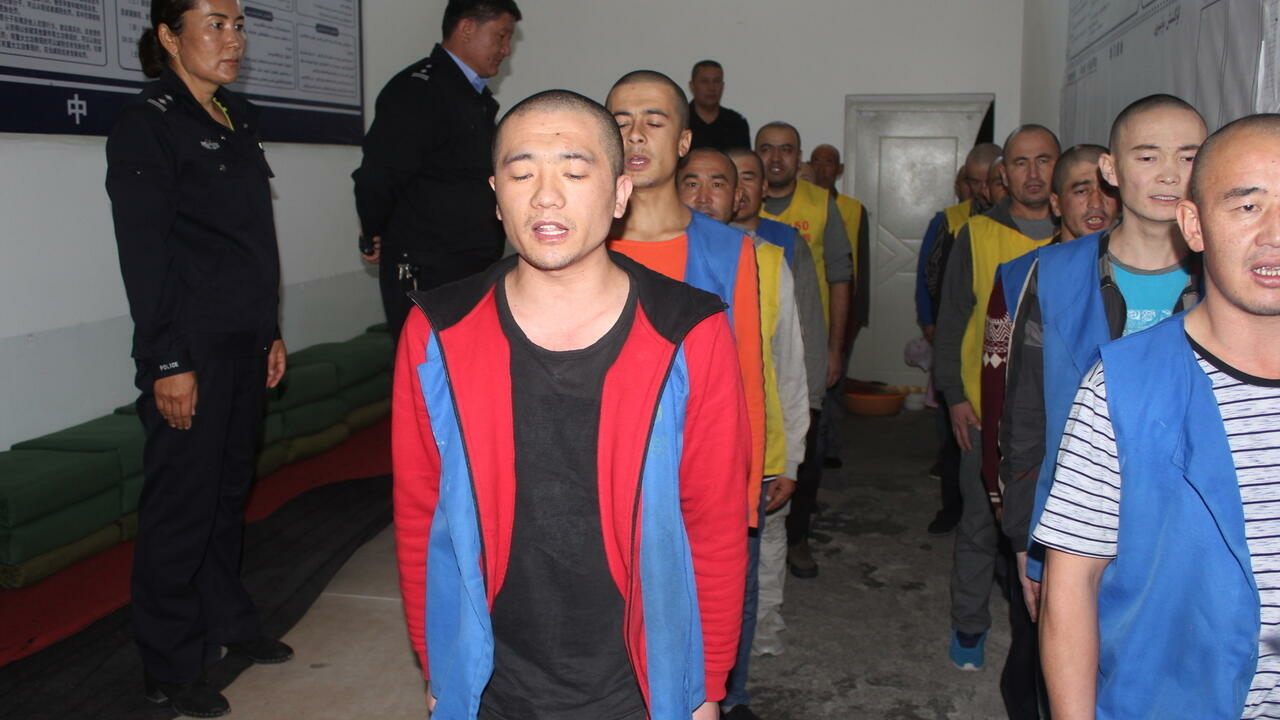
Uyghur activists and exiles had hoped a long-delayed UN report into alleged human rights violations by China would make it impossible for the world to ignore their plight
Sydney (AFP) – Uyghur activists and exiles had hoped a long-delayed United Nations report into alleged human rights violations by China would make it impossible for the world to ignore their plight.
Advertising Read more
On Thursday, they grappled with a less decisive outcome: a report vindicating claims of systemic Chinese abuse but stopping short of using the word “genocide”, signalling a long battle ahead.
Minutes before leaving her post as UN human rights chief, Michelle Bachelet released a 46-page “final assessment” documenting what she described as possible “crimes against humanity” committed by China over several years.
The text — fiercely opposed by Beijing — contained serious allegations of mass detention, torture, sexual violence and forced medical procedures targeting China’s Muslim and Uyghur minorities in the Xinjiang region.
For Norway-based activist Abduweli Ayup it was “a very emotional moment”, a vindication after years of being stonewalled by Beijing’s vociferous denials.
It was a statement to sceptics “that yes, these things have really happened” he said.
“That’s really important.”
‘Need real action’
Many Uyghurs had counted on Bachelet to be their champion, believing her past experiences would lead her to lend an empathetic ear to their plight.
#photo1
The former Chilean president was herself a political prisoner, suffered torture and was forced into exile.
Her father died opposing military dictator Augusto Pinochet’s regime.
Crucially, the UN report stopped short of declaring the alleged crimes a genocide — a charge with the power to upend China’s relations with much of the world.
For many Uyghurs, that made the report only a partial victory.
“We had hoped Bachelet would’ve been a voice for Uyghurs,” said Salih Hudayar, a Uyghur-American who campaigns for independence for Xinjiang, also known as “East Turkestan” to some.
“But on the contrary, she remained silent and tried to appease the Chinese government.”
Like many, Hudayar suspects intense behind-the-scenes lobbying by China caused the report to be watered down significantly, calling the integrity of the UN itself into question.
Sadam Abdusalam was not surprised. A young Australian Uyghur whose wife and infant child were until recently trapped in China, Abdusalam never put much faith in the UN or its report to change anything.
“There have been lots of reports already about what’s happening in Xinjiang,” he told AFP, pointing to years of revelations that have failed to stop abuses and hit a wall of Chinese denials.
“Lots of Uyghurs have false hope. What can the UN or the rest of the world actually do to help?” he asked. “We need real action.”
‘Humanity is still alive’
For others, the UN can still redeem itself.
Borne from the ashes of World War II and the horrors of the Nazi Holocaust, Bachelet’s UN Office for Human Rights was created to ensure history was not repeated.
Tahir Imin, an activist and academic, said the UN could have done more sooner, but he believes a half-step is better than no step at all.
It is a “signal that humanity is still alive” he said, expressing hope that leaders will now see the report and feel spurred to action.
Above all, he wants what is happening in Xinjiang to end — regardless of what label it is given.
“I wish my mum, two brothers, my sisters-in-law, uncles and aunts, who are imprisoned for their identity and their relations with me, come out of prison,” he told AFP.
“(I wish) my ex-wife, my daughter and all others could see the light of a bright sun, take a free breath, and hear my voice.”
© 2022 AFP







